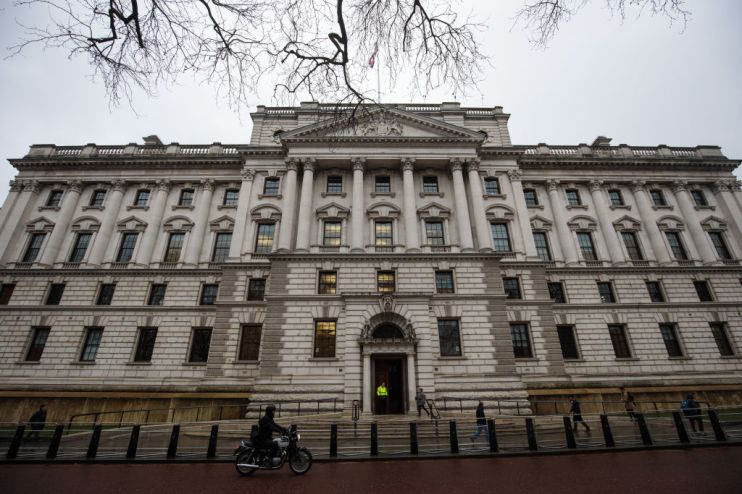Think tanks warn government to stop meddling in energy market

The government should reconsider plans to further interfere in the domestic energy market, argues the Institute of Economic Affairs.
The think tank’s energy analyst Andy Mayer told City A.M. the current spike in energy prices is “rooted in the government’s interventions in the energy market”.
He criticised Downing Street plans, first reported in The Financial Times, to soften the blow for UK households by handing energy suppliers public money whenever wholesale gas prices rise sharply from market shocks.
Under proposals being weighed up by the government, energy firms would be supplied with public funds when wholesale prices exceeded a threshold, to prevent price hikes being passed on to consumers.
The measure, known as a temporary price stabilisation mechanism, could potentially be self-funding as energy companies would have to return money to the government when wholesale prices traded below the agreed level.
However, this would be dependent on energy prices declining, as it would otherwise leave taxpayers exposed to higher costs from propping up suppliers.
Mayer said: “More intervention is not a solution and will make these problems worse. This policy is a mask, when what the market needs is a vaccine.”
Instead of introducing more measures to control the market, the IEA analyst suggested that the UK should give the green light to new developments in the North Sea and support onshore fracking, which would help shore up the country’s energy supplies and potentially contain soaring prices.
He concluded: “Addressing neither error, while introducing a hidden price cap, will further damage competition and ensure that taxpayers are exposed to higher costs for longer. The main winners will be financiers supporting wholesale hedging contracts, not the public.”
This outlook was largely shared by the IEA’s economics fellow Julian Jessops.
While he acknowledged there was “no easy or cheap ways to keep energy bills down”, Jessops felt the so-called price stabilisation mechanism had two main flaws.
Firstly, he questioned why the taxpayer should bear the risk of price fluctuations when “market incentives can only work properly if risks are shared by consumers and suppliers”, and he also said the scheme would prevent consumers from benefitting from future price falls.
He added: “The proposed mechanism is described as ‘temporary’ and ‘self-funding’, but it cannot really be both. For the taxpayer to get their money back, the scheme would need to be in place for a long time. And during this time, suppliers would have to pass any savings from lower wholesale costs to the taxpayer rather than to customers.”
Overall, he considered the proposed measures as “worse than the current price cap.”
Consumer price cap criticised amid market carnage
The domestic consumer price cap has been a lightning rod for criticism, with the measure preventing suppliers from passing on rising wholesale costs.
It has limited energy bills to £1,277 per year for average use, which might initially have mitigated high prices for households, but it has also made the market unattractive to further investment.
It has also caused industry carnage with dozens of suppliers ceasing to trade since September – including Bulb Energy being propped up with taxpayer funds over the winter.
The chaos has left UK households on the hook for potentially billions of pounds alongside the expected price hike in energy bills – with a 50 per cent raise anticipated in April when Ofgem reconvenes to discuss the mechanism next month.
John Macdonald, director of strategy at the Adam Smith Institute said: “The government has deprived the market of its ability to operate under pressure. The price cap forces providers to sell at or near a loss, stifling competition and distorting the price signals that allow consumption and investment to shift with scarcity.”
Commenting on the latest proposals, he added: “Predictably, the Government is now turning to the taxpayer to cover payments to struggling energy companies, tiding them over while wholesale energy prices remain high. Given the vulnerability of the market to supply shocks, taxpayers could be exposed to footing an increasingly expensive bill for an indefinitely long time.”
Meanwhile, the Taxpayers’ Alliance has also come out against the cap, and has once again called for the government to ditch green levies which currently account for £159 of the average energy bill.
John O’Connell, chief executive of the Taxpayers’ Alliance, said: “Simply handing money over now gives energy firms no incentive to fix their underlying issues before the next spike in global gas prices. If ministers want lower prices for consumers, they should power ahead with eliminating the ineffective green levies that place an extraordinary burden on household bills and businesses.”